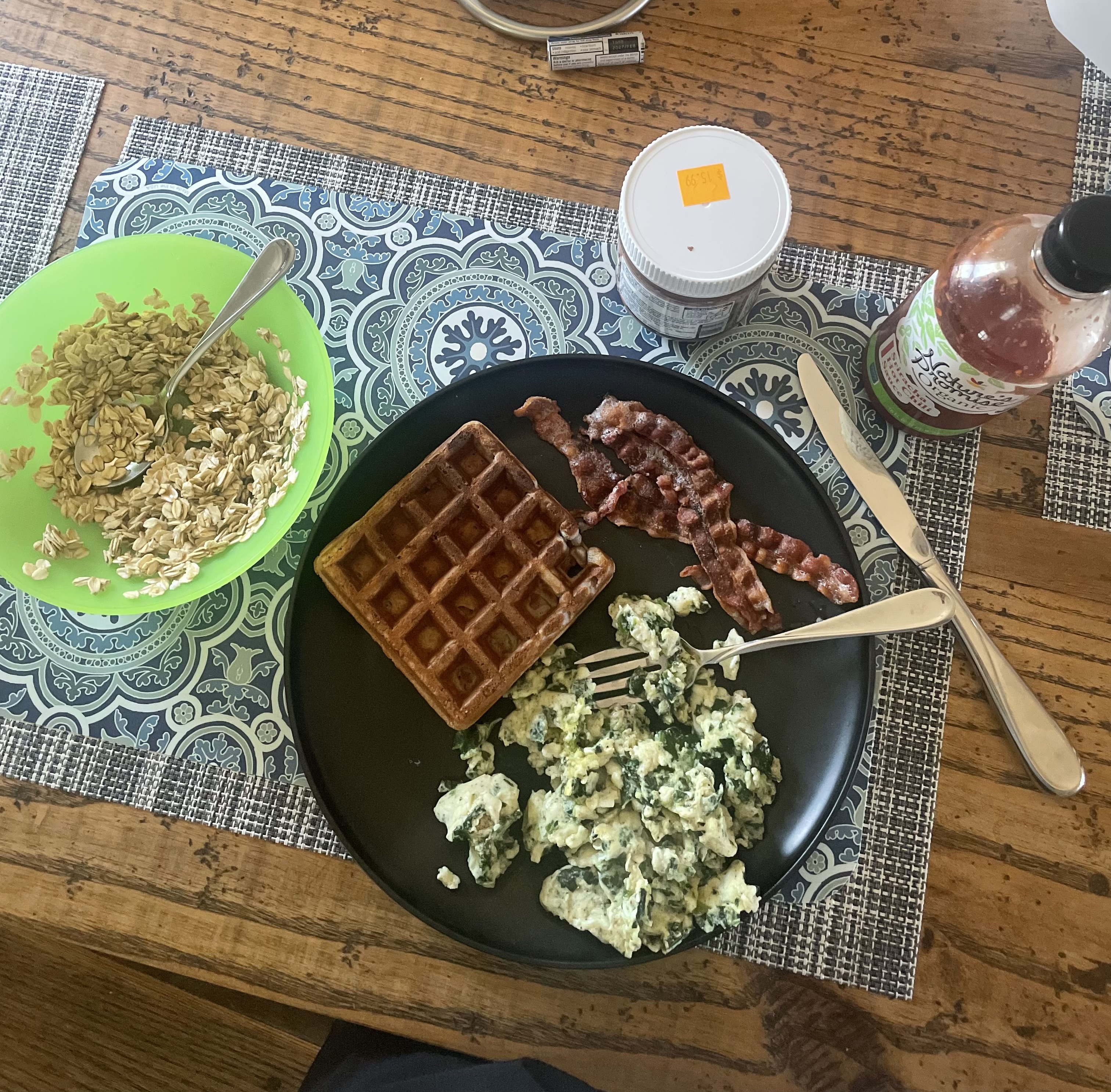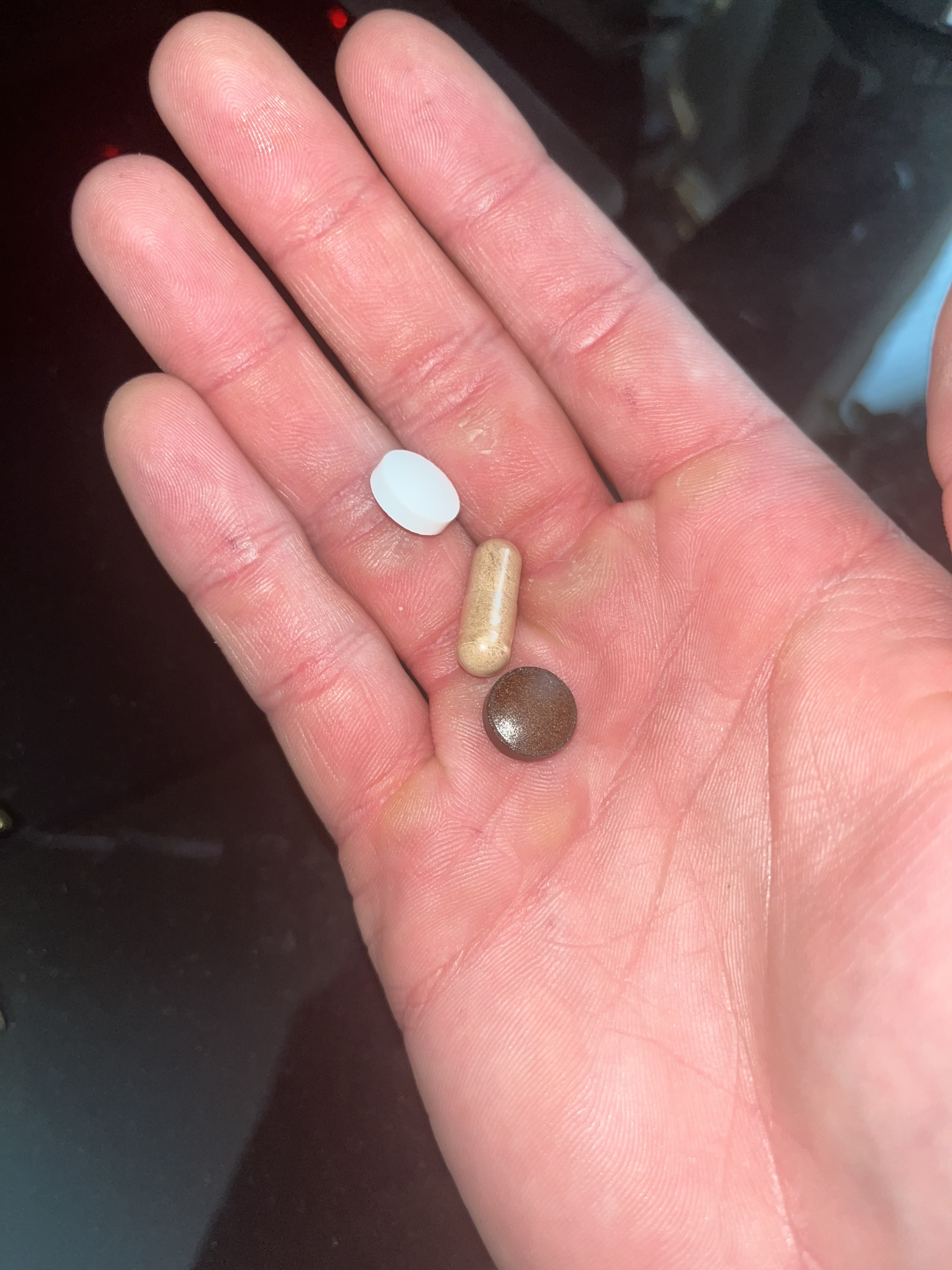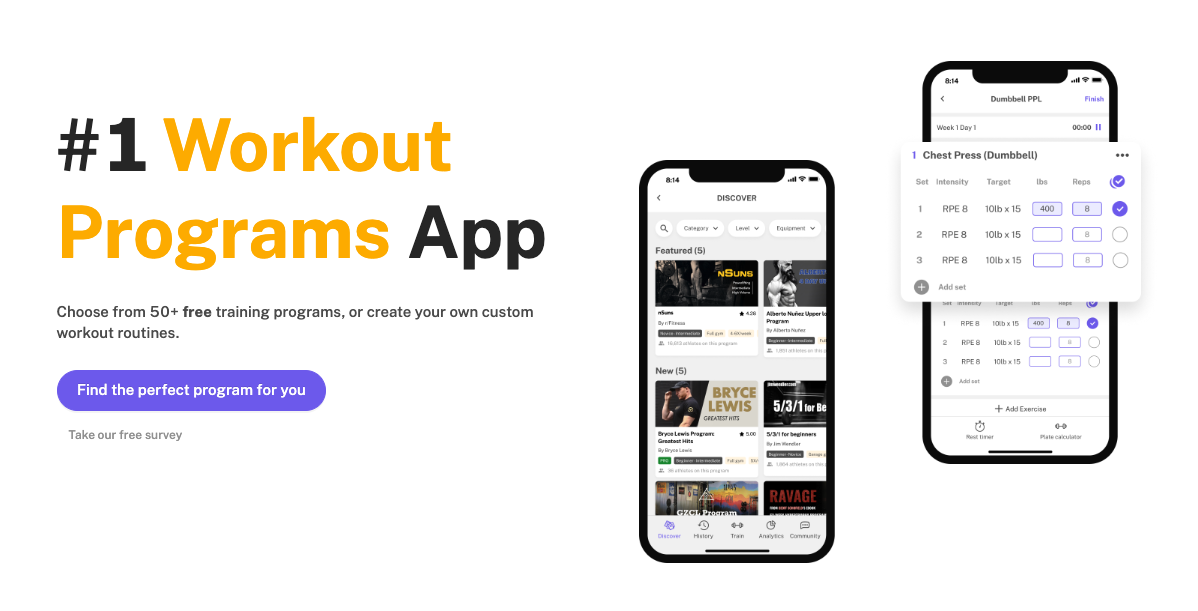The Best Supplements for Powerlifters
Written by the Boostcamp staff
Get Stronger with the Best Supplements for Powerlifting
When it comes to powerlifting, things like diet and supplementation are just as important for your progression as a proper workout program. You see a lot of supplementation in sports like bodybuilding, and although most powerlifters are not focusing as heavily on their aesthetics, supplementation can still have a massive impact on injury prevention, recovery, strength, power, endurance, and even things like boosting libido, but that is not the topic of today's discussion. So, what exactly are the best supplements for strength training and powerlifting?
We will be taking a look at key supplements, like a pre-workout supplement, which includes a carefully crafted formula that targets multiple aspects of your training, including providing an instant energy boost through a blend of caffeine, electrolytes, and other stimulants to help you squeeze out those extra reps and take your progress to a new level, amongst others.
Let's dive in!
Look Out for Banned Supplements
Before you start scouring the shelves for every supplement you can find that will make you stronger, you have to be very careful and look into these things, specifically if you are a competitive powerlifter. Many competitive powerlifting federations are going to be tested, and the list of banned substances changes every year, meaning it is not just steroids that are banned, so you have to make sure that the supplements you are taking are accepted in these federations.
The reputation of a supplement company also plays a huge role, as there have been a few of them that have gotten in trouble for contaminated supplements. For example, SARMs have been found in certain products of certain companies, ones that were said to be “banned substance tested”, so this is something you are going to want to look out for when supplement shopping. One way to stay protected from instances like these are to look for companies that have their products third-party tested.
Proper Nutrition Before Supplementation

Another thing to keep in mind is you want to have your diet mostly in check before you start taking supplements. This means that you should be monitoring your caloric intake and making sure everything is going well depending on your goals. Now, powerlifting diets typically are not as restrictive as bodybuilding diets, but it is good to have a good diet in place catered to helping you gain strength and size.
Best Supplements for Powerlifters
Now to get into the actual topic, let’s discuss what the best supplements for powerlifters are.
Creatine
Creatine is a naturally occurring substance, and it can be found in the mitochondria of muscle cells. While the human body makes it, creatine is also found in foods you eat, such as red meat. Creatine brings several benefits to the table for strength athletes, hence the reason it is one of the best supplements for powerlifters, including creatine supplementation, as it helps combat the acidic effects of lactic acid and acts as a cellular buffer to acid in the muscles, delaying time to fatigue. Nitric oxide boosters, such as citrulline, arginine, and beetroot powder, are also commonly used by powerlifters as they enhance your ability to get a pump and increase the delivery of oxygen, nutrients, and blood flow to the working muscles. Let's break it down.
First, it provides extra creatine phosphate for the muscle cell to use in the ATP energy system, which might sound like gibberish. However, for a strength athlete, this means you can do more repetitions in a training session, as there is more juice stored in the muscles. Creatine is also a cell volumizer, as it draws more water into the skeletal muscle cell, or fiber, and increases its size. Additionally, creatine helps the body regenerate energy from ATP (adenosine triphosphate) by donating a phosphate group to ADP (adenosine diphosphate). The main benefits of using creatine are increased performance, pumps, recovery, and reduced fatigue.
Creatine comes in various delivery modes, such as creatine monohydrate which is effective for increasing strength and size, but can cause some people to experience gastrointestinal distress. There are also other available forms, such as creatine phosphate and creatine citrate, and they still deliver potent strength gains but without the gastrointestinal issues. However, there is still a long standing debate amongst the different creatine on which one is best in terms of the time of day to take it.
Fish Oil
Fish oil is one of the best supplements for powerlifters because it contains both omega-3 and omega-6 fatty acids, which are high in unsaturated fats. The benefits that matter most to powerlifters, are less pain and inflammation through regulation of the body’s inflammation cycle. Fish oil prevents and relieves conditions such as tendinitis and bursitis, which is great for beating the fatigue and getting right back into the gym and training heavy on those compound lifts. Additionally, omega-3s can exacerbate fat loss by increasing metabolism and improving insulin sensitivity, making fish oil an essential supplement for powerlifters.
Some research even shows that fish oil improves body composition by decreasing overall body fat. The recommended dose of fish oil is 1,000 milligrams per day, and of course you can get a good amount of fish oil by simply eating fatty fish, but you would have to eat a lot, and supplementing it ensures you are getting the proper amount without scarfing down multiple pounds of fish each week.
Magnesium and Zinc
Both magnesium and zinc are essential for proper hormonal function and energy metabolism, and you can find them in a good amount of over the counter testosterone boosters. Having a deficiency in one, or both, of these minerals, you are more than likely deficient in testosterone in your body. Testosterone is essential for things like strength, muscle mass, and bone density, and being that magnesium, zinc, and vitamin D help you boost testosterone and resistance training, they had to make the list for best supplements for powerlifters.
You can get both magnesium and zinc through nuts and meat, but supplementing it through a multivitamin, testosterone booster, or each of them separately ensures you are getting the right amount to regulate hormonal levels and keep you pushing heavy weight.
Potassium
Potassium is a mineral used in muscle contraction, and a deficiency in this mineral results in either weak muscular contraction or muscle cramping, which can prohibit your powerlifting progress. Potassium is found in foods such as white and sweet potatoes, as well as in bananas and fortified sports drinks, but as usual, supplementing with it is always a simple way to take it in and ensure you're getting enough calories.
Glucosamine and Chondroitin
This is a combo you may not have heard of before, but glucosamine is an amino sugar that may help repair and form joint cartilage, while chondroitin is part of a protein that helps with the elasticity of cartilage. It is thought that when the two are combined, they will help prevent cartilage breakdown as well as improve joint function, which can be beneficial on those heavy movements like the bench press or squat.
Possible benefits of glucosamine and chondroitin include:
Less pain in the joints
More flexibility
Anti-inflammatory effects
No destruction of cartilage
Better joint lubrication
More synovial fluid
Rebuilt cartilage
Relief from osteoarthritis symptoms
A combination of glucosamine and chondroitin also may decrease healing time needed for acute joint injuries, like sprained ankles and other injuries of the sort. However, it is thought that if you don’t feel better after 8 to 12 weeks, the combination unfortunately, more than likely will not help you.
The reason this combo makes the list for the best supplements for powerlifters is because powerlifting can take a large toll on your joints. The repeated stress on your joints can leave you with pain in those areas that will hinder your training and results, which is something no one wants. With glucosamine and chondroitin’s potential benefits to the joints and cartilage, it is no doubt that these two supplements would make the list of the best supplements for powerlifters.
Glucosamine and chondroitin come from shellfish, so it may be best to avoid these specific supplements if you have a shellfish allergy. The recommended daily doses of glucosamine are 1,500 to 2,000 milligrams, and for chondroitin the recommended dose 1,200 milligrams. There is a liquid form that is thought to be the best because the body absorbs it more easily. However, if the only form you can take is a capsule, there is nothing wrong with that as it will still hopefully be effective.
Finding Workout Programs
As important as supplementation is, you always need a good program to really push yourself and make progress. That being said, the Boostcamp App is one of the top places to find a good workout program. Being home to over 50 free workout programs, you can find something to fit your goals, and you can even create your own program! The best part is, you can track your progress the whole way.
Best Supplements for Powerlifters Wrap Up

Overall, supplementation is huge for powerlifters as it can greatly help recovery and aid in your progression in the gym. While there are plenty of things to be careful of with supplementation in competitive powerlifting, you just have to be vigilant of where you are buying from and what the products that you are buying are, including protein powder supplements that provide a rich source of protein and essential amino acids like leucine to help enhance muscle protein synthesis and replenish glycogen stores.
Do you agree with our list of the best supplements for powerlifters? Let us know, and be sure to check out our programs while you’re at it! By using the Boostcamp App for your training routine, you'll have all the tools you need to develop a strong mind-muscle connection and break through plateaus, continuing to make progress. Download the Boostcamp App today and take your workouts to the next level!
Let us know your thoughts! And be sure to follow Boostcamp on Instagram and subscribe on YouTube!

References
WebMD. (n.d.). Glucosamine: Overview, uses, side effects, precautions, interactions, dosing and reviews. WebMD. https://www.webmd.com/vitamins/ai/ingredientmono-807/glucosamine#:~:text=Glucosamine%20can%20cause%20some%20mild,of%203%2D4%20grams%20daily.

